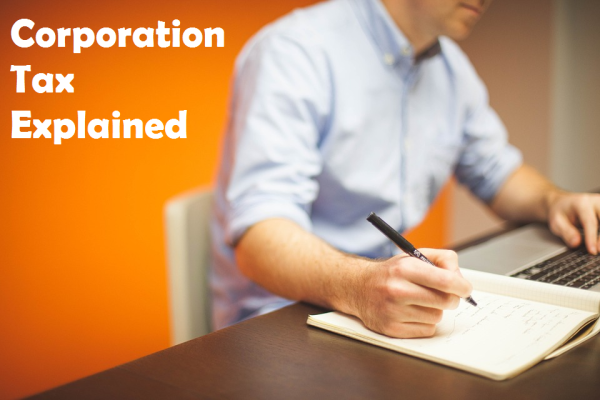Corporation Tax Explained

For the uninitiated, terms such as Corporation Tax can often cause a little confusion. Thankfully, however, this can be addressed with a few simple explanatory points – points that we’ll hopefully make here for you today.
In a nutshell, Corporation Tax is the same as income tax, but instead of being paid for by individuals, Corporation Tax is met by registered companies.
The rate of taxation used to be based upon a sliding scale, but this changed on the 1st of April 2015 to a flat rate of 20%, making tax calculations a far simpler affair. As opposed to the old tiered system, the flat rate now applies to all businesses. This means that you will be charged 20% on all company profits, regardless of how much that may be.
The only difference will be for ring fence companies. Ring fence companies are those that make their profits by way of oil extraction or from oil rights in either the United Kingdom or the UK continental shelf. Companies such as these can claim Marginal Relief on all profits between £300k and £1.5 million.

This is one of the most confusing parts of the Corporation Tax equation. The payment date for corporation tax is different from that of VAT and income tax and your company will have to settle its corporation tax bill before you file a company tax return.
This is based on a nine-month timeframe from the end of your company’s accounting period for the previous financial year. Many companies choose to end their financial year on the 31st of March, so in this instance their corporation tax bill must be settled by the 1st of January in the following year.
Payment by post is no longer accepted by HMRC and all bills need to be settled up electronically. However, there is a loophole available if you would still prefer not to enter your details online and that is to pay by cheque via your bank or building society. Oddly, HMRC still considers this to be an electronic payment.
Direct debit is another option. Register your account with HMRC Online Services and you will then be taken through a step-by-step process that will enable you to set up a direct debit payment from your bank or building society account.
Possibly the most common way to pay is via either a credit or debit card. HMRC payments are made via Santander’s Corporate Banking service, BillPay. Please bear in mind that all credit card payments incur an additional fee of 1.4% per transaction, which can equate to a fairly hefty amount for some businesses. Debit cards, on the other hand, escape this charge. Neither Diners Club nor American Express cards are currently accepted by HMRC.
Internet and telephone banking options are also available and fairly simple to set up. All you need is HMRC’s bank details and your own corporation tax reference to make either a BACS or CHAPS payment. BACS usually takes three working days to clear, whereas CHAPS should hit HMRC’s account the very same day – handy if time is against you.
Linda Carr is the Founder of Linda Carr Accountants, a Chartered Certified Firm of accountants based in Peterborough, which was established in 2009. Linda recognises the need for SME’s to be able to access a reliable accountant for an affordable price.
